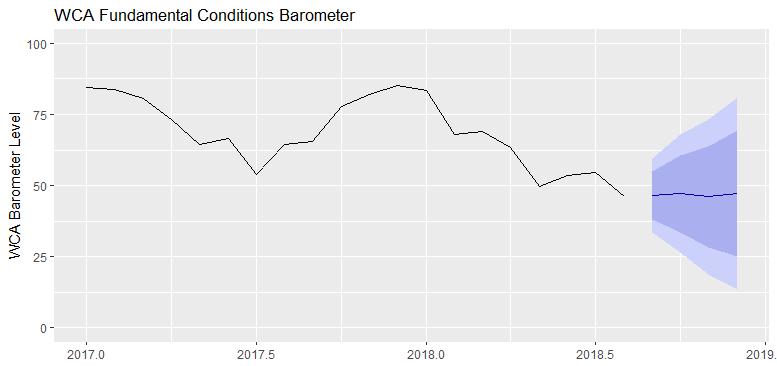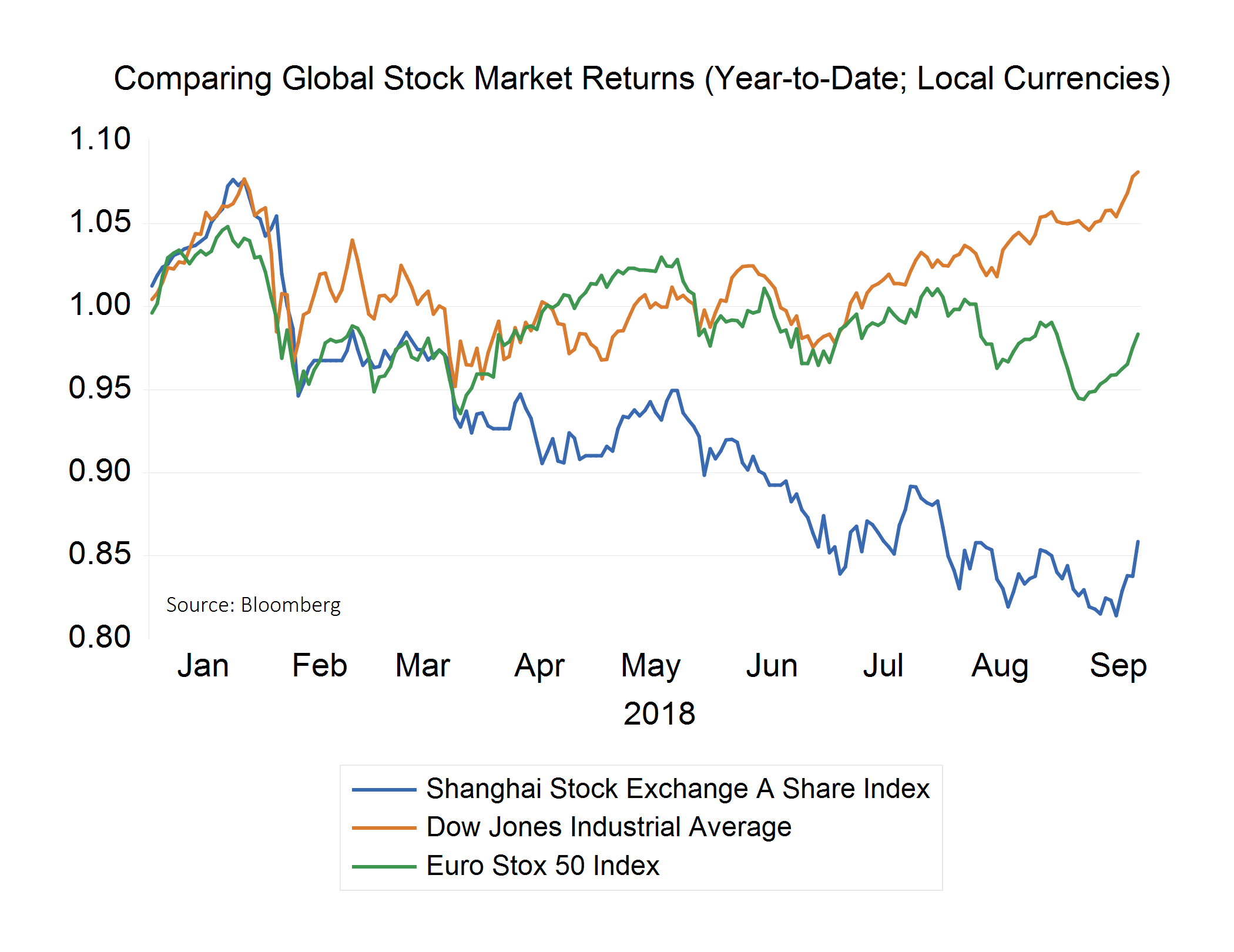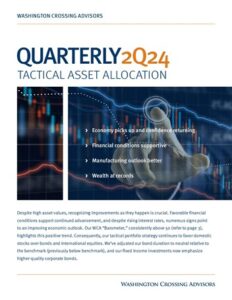Monday Morning Minute 092418
Although domestic growth remains strong, the outlook for growth in other parts of the world has weakened.
Global Growth Weakens
Global growth is weaker than anticipated in May, said the Organization for Economic Cooperation and Development (OECD) last week in their latest Economic Outlook. Trade tensions, tightening financial conditions in emerging markets, and political risks could all further dampen the outlook according to the report.
The OECD trimmed their 2018-2019 global economic growth outlook by -0.1% to 3.7%, with rising differences across countries. While the United States remains steady, the OECD sees weaker growth throughout most of the world. Confidence has weakened, especially in emerging markets, and foreign trade and investment growth have proven slower than previously anticipated.
We agree with the OECD’s assessment. Our read of incoming data since the spring has shown that pockets of weakness have formed outside our borders. In fact, it is the foreign sub-component of our WCA Fundamental Conditions Barometer that has been weighing most on our barometer’s progress this year (chart A, below). Notably, emerging markets, which are often saddled with debt and volatile currencies, are seeing much tighter financial conditions than a year ago.
We only need to look at recent events in Turkey, Brazil, and Argentina to see just how quickly fortunes can change in emerging economies. Even China, despite its size and continued growth, is experiencing pain as their stock market falls into bear market territory. Looking ahead, a potentially disorderly Brexit looms larger for Europe, which risks seeing further erosion in confidence and growth should negotiations toward an orderly exit fail. Add to this ongoing trade negotiations between the United States and our largest trading powers, and it is easy to see why the global economy is experiencing rising angst and uncertainty.
Chart A

Comparing Global Returns
The shifting global outlook can also be seen in the performance of the world’s stock markets this year. In local currencies, the United States Dow Jones Industrial Average is up 8% year-to-date, and Japan’s Nikkei is up 5%. However, the Euro Stoxx 50 is down 2% in local currency and China’s “A” Shares are down 15% measured in renminbi (chart B, below). Also, the U.S. dollar has increased 5-10% since early spring against most major global currencies. The OECD’s assessment that global growth prospects have become more disjointed seems to fit well with what markets have been telling us all year.
Chart B

Powell’s Turn
With growth still strong in the United States, the Federal Reserve Open Market committee meets this week and we expect Wednesday’s press conference by Federal Reserve Chairman Jerome Powell to attract considerable attention. With short-term rates still low, and domestic growth and inflation firming up, we are expecting to see a 25 basis point hike to the federal funds rate.
Kevin Caron, CFA, Senior Portfolio Manager
Chad Morganlander, Senior Portfolio Manager
Matthew Battipaglia, Portfolio Manager
Suzanne Ashley, Analyst
973-549-4168
Disclosures
WCA Fundamental Conditions Barometer Description: We regularly assess changes in fundamental conditions to help guide near-term asset allocation decisions. The analysis incorporates approximately 30 forward-looking indicators in categories ranging from Credit and Capital Markets to U.S. Economic Conditions and Foreign Conditions. From each category of data, we create three diffusion-style sub-indices that measure the trends in the underlying data. Sustained improvement that is spread across a wide variety of observations will produce index readings above 50 (potentially favoring stocks), while readings below 50 would indicate potential deterioration (potentially favoring bonds). The WCA Fundamental Conditions Index combines the three underlying categories into a single summary measure. This measure can be thought of as a “barometer” for changes in fundamental conditions.
The information contained herein has been prepared from sources believed to be reliable but is not guaranteed by us and is not a complete summary or statement of all available data, nor is it considered an offer to buy or sell any securities referred to herein. Opinions expressed are subject to change without notice and do not take into account the particular investment objectives, financial situation, or needs of individual investors. There is no guarantee that the figures or opinions forecasted in this report will be realized or achieved. Employees of Stifel, Nicolaus & Company, Incorporated or its affiliates may, at times, release written or oral commentary, technical analysis, or trading strategies that differ from the opinions expressed within. Past performance is no guarantee of future results. Indices are unmanaged, and you cannot invest directly in an index.
Asset allocation and diversification do not ensure a profit and may not protect against loss. There are special considerations associated with international investing, including the risk of currency fluctuations and political and economic events. Investing in emerging markets may involve greater risk and volatility than investing in more developed countries. Due to their narrow focus, sector-based investments typically exhibit greater volatility. Small company stocks are typically more volatile and carry additional risks, since smaller companies generally are not as well established as larger companies. Property values can fall due to environmental, economic, or other reasons, and changes in interest rates can negatively impact the performance of real estate companies. When investing in bonds, it is important to note that as interest rates rise, bond prices will fall. High-yield bonds have greater credit risk than higher-quality bonds. The risk of loss in trading commodities and futures can be substantial. You should therefore carefully consider whether such trading is suitable for you in light of your financial condition. The high degree of leverage that is often obtainable in commodity trading can work against you as well as for you. The use of leverage can lead to large losses as well as gains.
All investments involve risk, including loss of principal, and there is no guarantee that investment objectives will be met. It is important to review your investment objectives, risk tolerance and liquidity needs before choosing an investment style or manager. Equity investments are subject generally to market, market sector, market liquidity, issuer, and investment style risks, among other factors to varying degrees. Fixed Income investments are subject to market, market liquidity, issuer, investment style, interest rate, credit quality, and call risks, among other factors to varying degrees.
This commentary often expresses opinions about the direction of market, investment sector and other trends. The opinions should not be considered predictions of future results. The information contained in this report is based on sources believed to be reliable, but is not guaranteed and not necessarily complete.
The securities discussed in this material were selected due to recent changes in the strategies. This selection criteria is not based on any measurement of performance of the underlying security.
Washington Crossing Advisors LLC is a wholly owned subsidiary and affiliated SEC Registered Investment Adviser of Stifel Financial Corp (NYSE: SF).



